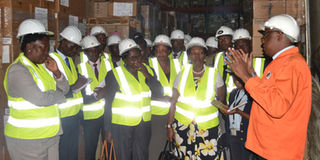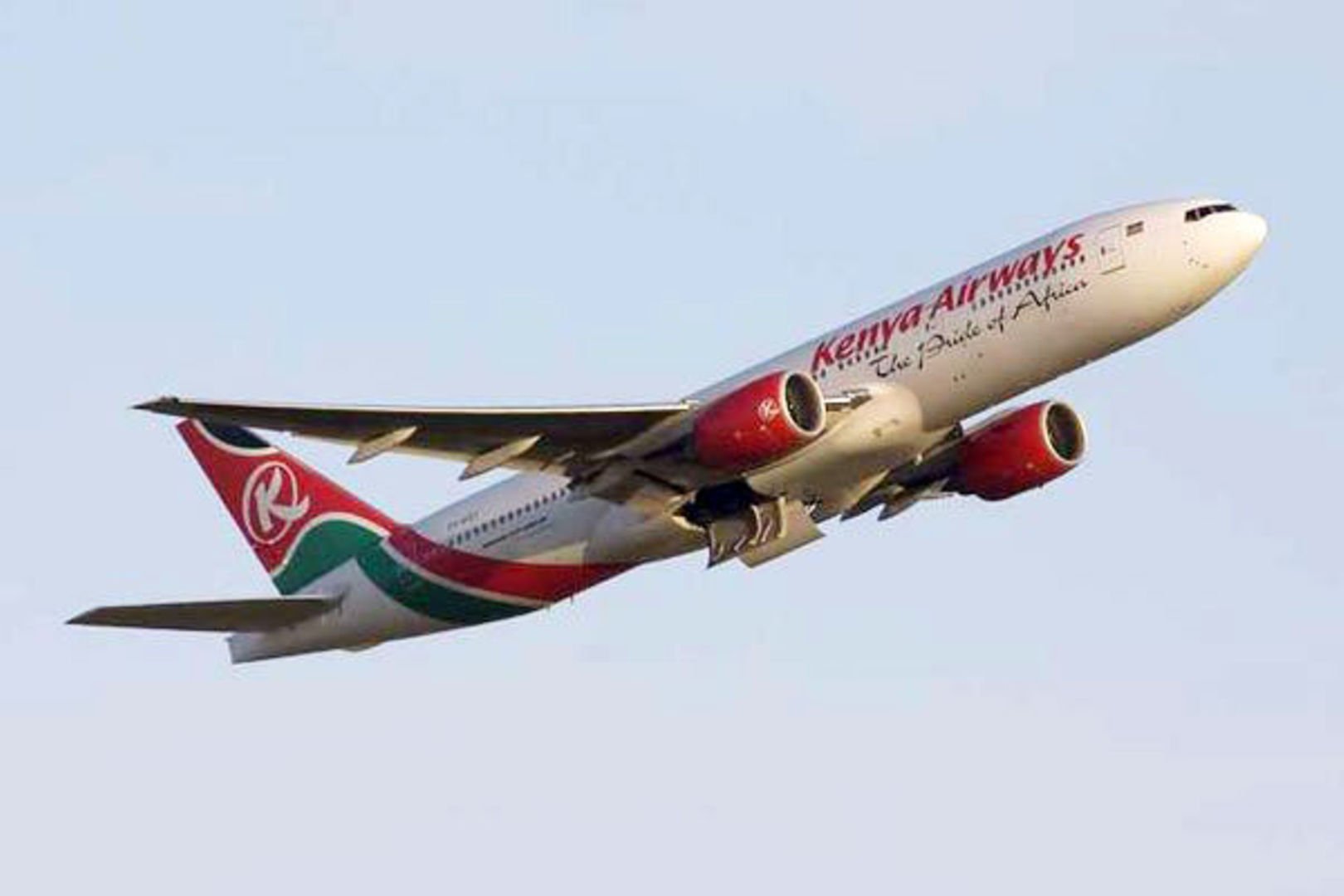Finance blocks Shs8b for hepatitis B vaccines

Visit. Speaker Rebecca Kadaga (left) and MPs on the Health and Public Accounts Committee listen to NMS general manager Moses Kamabare (right) during the tour of the stores. PHOTO BY PAUL ADUDE
What you need to know:
Issue. NMS officials say if the money is not released, their efforts and funds spent will be wasted.
Entebbe. Ministry of Finance officials have blocked a supplementary request for nearly Shs8 billion that is urgently needed to complete vaccination against hepatitis B virus in 39 districts in eastern and northern Uganda, according to authorities at National Medical Stores (NMS).
Mr Moses Kamabare, the general manager NMS, is now fearful that all previous efforts in containing the viral infection will go to waste in the 39 districts in the sub-regions of West Nile, Acholi, Lango, Karamoja, and Teso. NMS also requires another Shs68 to buy essential drugs in the fourth quarter of this financial year ending in June.
“We planned for Shs28b, and if the people who total up to 4,143,219 don’t receive the third dose of hepatitis B vaccination that is due at the beginning of April, then Shs20b that we have already spent on screening, vaccinations, paying health workers, among others, will all be lost,” he told Daily Monitor in an interview.
Hepatitis B, a viral infection and major global health problem, attacks the liver and can cause both acute and chronic liver ailments.
He said government had allowed the supplementary Shs11b but the Ministry of Finance gave only Shs3b to NMS.
Mr Kamabare said: “The first phase of the dosages in 14 of the 39 districts received the first and second doses and the remaining 25 received the first dose and require the second and third doses; and to be fully immunized, a person needs all the three 3 doses.”
A dose of hepatitis vaccine is bought at Shs1,617 ($0.45), meaning it requires Shs4,851 ($ 1.35) for one to complete a full dose.
Mr Kamabare said only government hospitals in the 39 districts offer the vaccination and Ugandans born before 2002 are all vulnerable to getting infected with the virus.
“Young ones (Ugandans) born since 2002 are taken care of because that is when government put it in place the hepatitis B vaccination programme, so they are all vaccinated and are protected because they received DPT shots.”
Mr Kamabare said the looming crisis was only brought to their attention when Parliament Speaker, Ms Rebecca Kadaga, visited one of the facilities during a familiarization visit with MPs on Parliament’s Public Accounts and Health Committees. It was then they learn that the remaining Shs8b and another extra Shs68b needed for buying the drugs were sunk to cover losses by NMS in foreign exchange due to the depreciation of the Shilling.
“Our purchasing power was affected, the state of health for Ugandans is at risk due to the loss we made in foreign exchange rates of Shs68 billion in the last financial year. If we don’t receive that money we won’t be able to pay any of the suppliers and won’t be able to purchase drugs and will only be able to avail ARVs, ACTs and TB drugs to Ugandans,” he said.
Mr Kamabare said the new Public Finance Management Act 2015 constrains them from committing government to buying more drugs yet they hadn’t paid for the previous stock, making them liable to court suits by the suppliers.
NMS has now petitioned Speaker Kadaga to intervene in the matter since government frontloaded funds for two quarters, namely the third and fourth quarter of this financial year.
In an interview yesterday, Ms Dan Kimosho, the NMS publicists, said that the drugs body is seeking for the a total of Shs76b approved by Parliament to cover up money lost in foreign exchange, including Shs8b for Hepatitis B drugs.
With a total budget of Shs246 billion, Mr Kimosho says NMS is cash-strapped and once the Shs76 billion is not released they are likely to fail to buy and supply any essential drugs during the fourth quarter that ends in May.
Ms Kadaga, who led the MPs recently on a tour of the stores and met with Mr Kamabare, told journalists after the meeting that an inquiry and report would be made on how the money got lost.
Districts population Doses
Abim 44,226 48,650
Adjumani 98,061 215,770
Agago 95,817 105,400
Alebtong 93,736 103,130
Amolatar 61,112 67,230
Amudat 45,329 49,880
Amuri 130,863 143,950
Amuru 80,245 88,280
Apac 153,515 168,780
Arua 330,722 727,580
Bukedea 91,361 100,500
Dokolo 75,953 167,100
Gulu 186,900 411,190
Kaabong 68,658 75,530
Kaberamaido 103,188 113,530
Katakwi 7 0,016 142,000
Kitgum 85,930 94,530
Koboko 87,678 146,320
Kole 100,621 110,700
Kotido 72,565 79,830
Kumi 124,804 274,580
Lamwo 56,462 62,130
Lira 170,775 375,750
Maracha 78,417 181,160
Moroto 57,195 128,800
Nakapiripiriti 68,827 75,730
Napak 58,901 129,580
Nebbi 162,255 178,500
Ngora 68,907 151,500
Nwoya 53,953 59,350
Otuke 43,937 48,350
Oyam 161,413 77,580
Pader 77,384 85,130
Serere 137,163 150,900
Soroti 143,704 158,080
Tororo 254,556 280,010
Yumbe 204,527 225,000
Zombo 101,243 111,380



